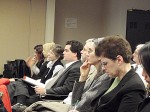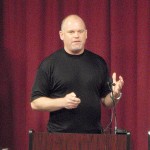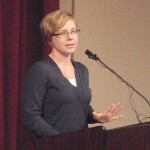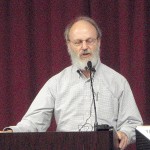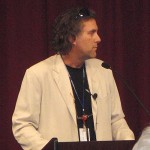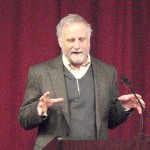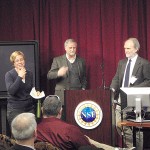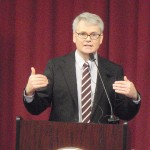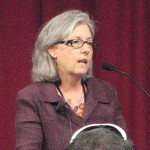Every spring, scientists from the Long Term Ecological Research (LTER) Network presented a mini-symposium at the National Science Foundation (NSF) in Arlington, VA. Now, the LTER Network Office (LNO) has posted online webcasts from the 2010 symposium, whose theme was "Ecosystem Services in a Changing World."
Now in its ninth year, this annual mini-symposium brings together scientists and educators from several LTER sites and disciplines to NSF to share with agency peers and policy makers the status of ongoing LTER research, important findings, and future plans.
Ecosystem services are grouped into four main categories: provisioning, such as the production of food and water; regulating, as in control of climate and disease; supporting, such as nutrient cycles and crop pollination; and cultural, including spiritual and recreational benefits. It’s important, LTER and other scientists say, to understand how ecosystem services are responding in a changing world, so these ecosystems may be managed in ways that sustain life on Earth.
Presentations addressed ecosystem services in agricultural systems, in temperate forest harvest systems, and in residential landscapes. Also covered were subjects such as changing urban water supplies in the tropics, the impacts of marine reserves on fisheries, and the implications of wildfires on human subsistence. The topics included:
- "Overview of Ecosystem Services" by Steve Carpenter, NTL
- "Ecosystem Services and Agricultural Systems" (Scott Swinton, KBS)
- "Ecosystem Services in Temperate Forest Harvest Systems" (Barbara Bond, H.J., AND)
- "Changing Preferences for Ecosystem Services Over Time" (Christopher Boone, BES)
- "Ecosystem Services in Residential Landscapes: Perceptions, Tradeoffs, and Cross-Site Research Opportunities" (Kelli Larson, CAP)
- "Social and Ecological Impacts/Implications of Marine Reserves on Trap Fisheries" (Hunter Lenihan, SBC)
- "Changing Urban Water Supplies in a Tropical Context" (Fred Scatena, LUQ)
- "Ecosystem Service Impacts/Implications of Fire Regime on Human Subsistence" (Terry Chapin, BNZ)
The symposium was webcast live by the LTER Network Office, which worked closely with NSF media experts to make sure the event went smoothly. The high quality video presentations were recorded and posted online shortly thereafter, and are available for viewing at http://mtsms.unm.edu/Mediasite/Catalog/Full/cf020feb9c6a4222a57d8daa334f7e3521/?state=alWe9j6IcOpM2uz5t5qu
Viewers generally need the Microsoft Silverlight Player plugin for their browsers to view the webcast (Moonlight player for Linux). Most people already have Silverlight installed in their computers, but an installation link will be presented on the viewing page for those who don’t. For more information about the 2010 LTER Mini-Symposium, see: www.nsf.gov/news/news_summ.jsp?cntn_id=116382&org=SBE&from=news
See the attached photos of Presenters and their audience during the Mini-symposium. (Photos: John Vande Castle).

 Enlarge this image
Enlarge this image